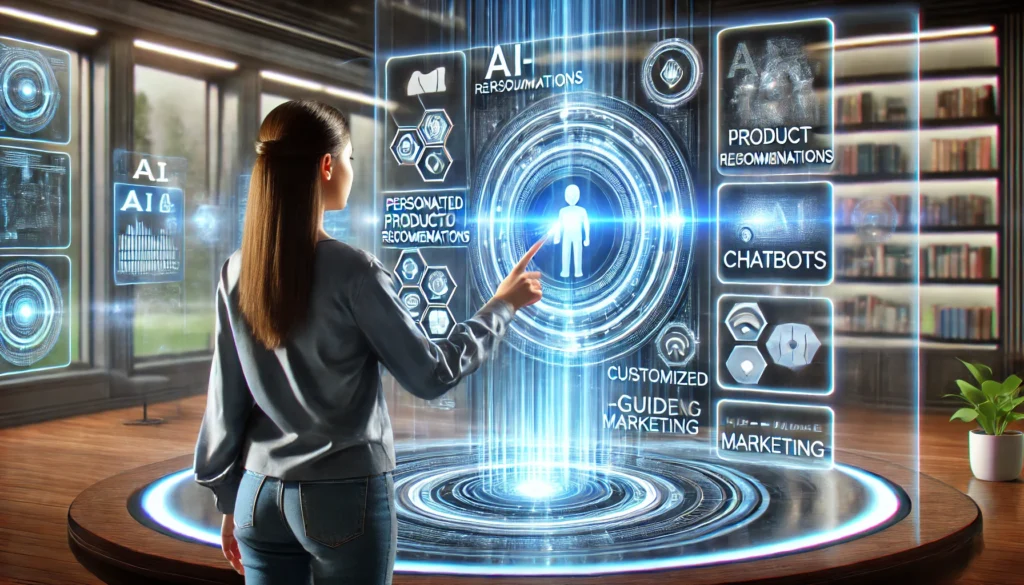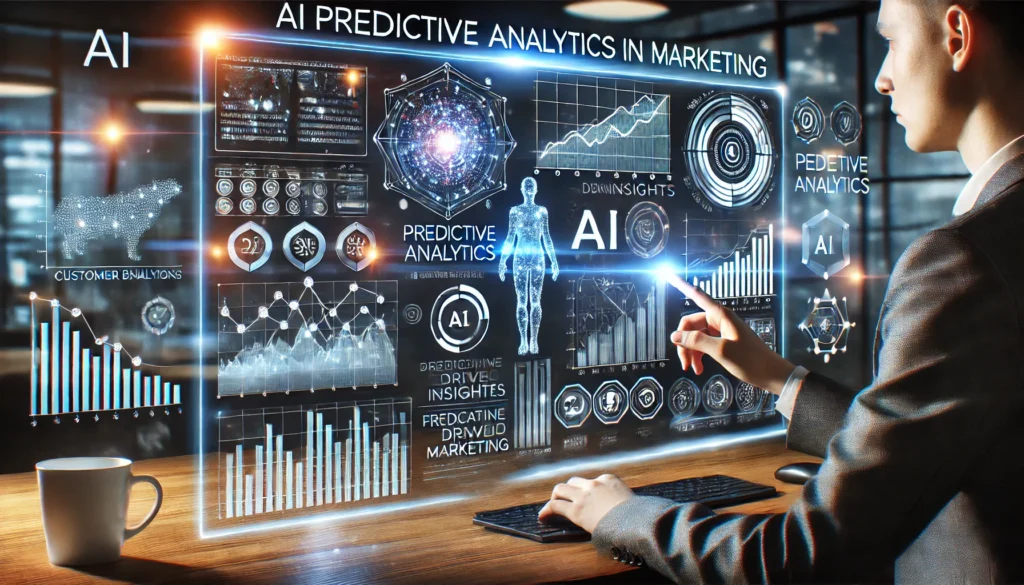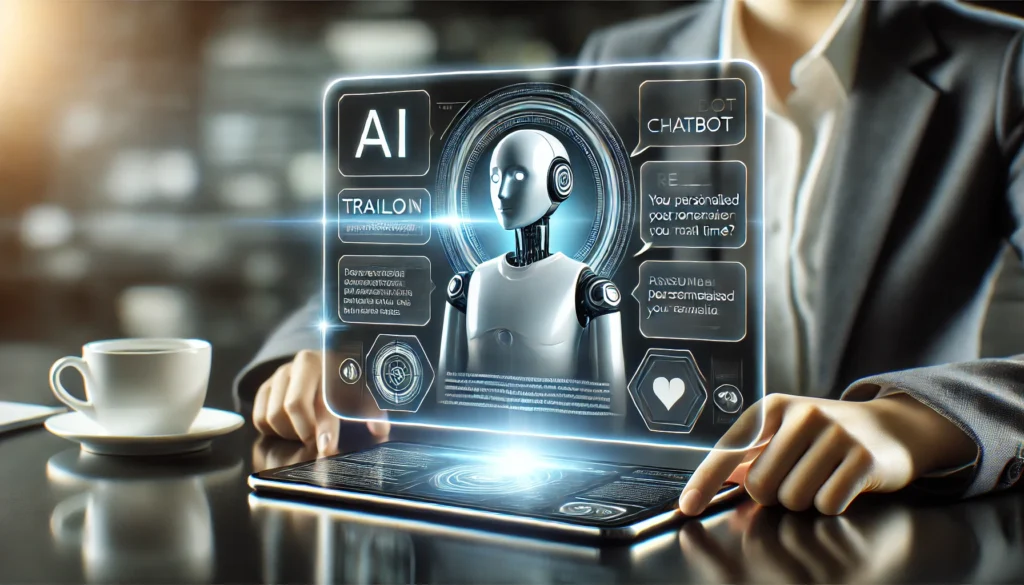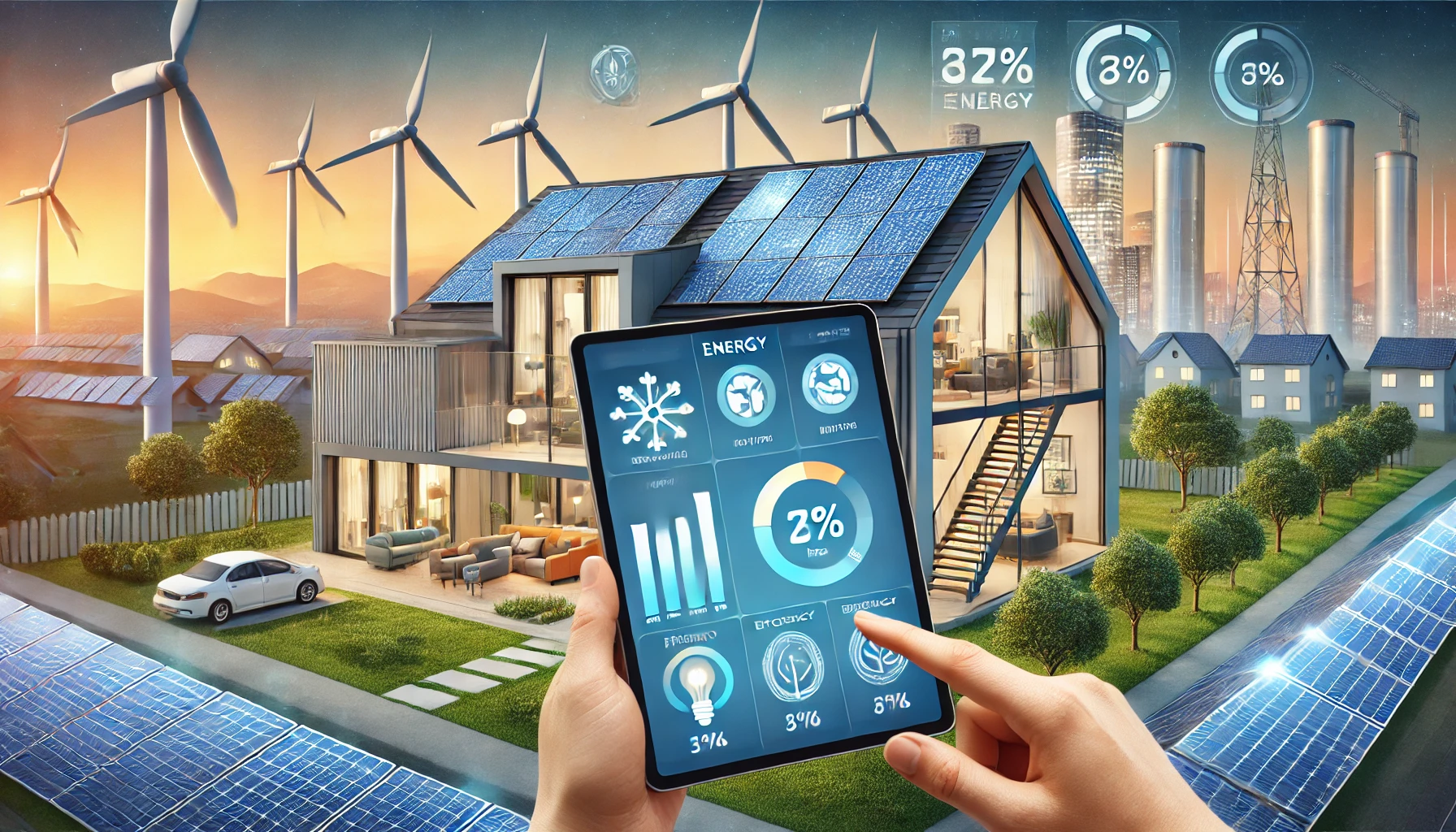The Role of AI in Personalized Marketing Strategies
Artificial Intelligence (AI) is transforming how businesses connect with their customers. Gone are the days of one-size-fits-all marketing campaigns. Now, brands can use AI to deliver personalized messages, recommend products based on individual preferences, and predict future buying behavior.
AI’s ability to gather, analyze, and act on vast amounts of customer data has made it a game-changer in personalized marketing strategies. Whether it’s tailoring email campaigns or optimizing product suggestions, AI is helping marketers create a highly personalized customer journey.

Key Takeaways
- AI enhances personalized marketing by analyzing customer data and behavior in real-time.
- AI technologies like machine learning and predictive analytics help segment audiences and tailor content.
- AI-driven personalization boosts engagement, conversions, and customer retention.
- AI tools automate tasks, saving time and improving campaign efficiency.
Part 1: Understanding AI in Personalized Marketing
What is Personalized Marketing?
Personalized marketing involves tailoring marketing efforts based on customer data, behaviors, and preferences. Instead of sending out mass messages, businesses can create individual experiences that resonate with each customer.
AI plays a crucial role by analyzing massive amounts of data quickly and identifying patterns that marketers wouldn’t notice on their own. For instance, platforms like Netflix and Amazon use AI to recommend shows and products based on what you’ve already watched or purchased. This level of personalization makes the customer feel understood, which is essential in today’s competitive market.
Learn more about improving your customer engagement strategies with personalization here.
How AI Powers Personalized Marketing
AI transforms personalized marketing strategies by helping marketers process data at scale. It can analyze user behavior, online activity, and even predict future actions. AI systems can tailor email content, push notifications, or product recommendations that suit individual customer preferences.
For example, Spotify uses AI in its Discover Weekly playlist, offering users a personalized list of songs based on their listening habits. AI analyzes millions of tracks, compares them with user preferences, and delivers an ideal selection.
Want to know more about using AI to improve your marketing campaigns? Check out this guide.
Types of AI Technologies Used in Personalized Marketing
Several AI technologies are revolutionizing how brands connect with customers:
- Machine Learning: Algorithms adjust and learn from customer behavior, creating more personalized experiences over time.
- Natural Language Processing (NLP): AI systems that understand text, enabling businesses to perform sentiment analysis on social media or chat interactions.
- Predictive Analytics: Uses data trends to forecast future customer behavior, helping businesses know when to offer promotions or what products to recommend.
- Recommendation Engines: AI algorithms that suggest content or products based on what users have previously interacted with.
These tools allow marketers to craft campaigns that target customers more effectively and with less guesswork.
Discover how machine learning can enhance your business here.
AI vs. Traditional Marketing: Key Differences
The differences between traditional marketing and AI-powered personalized marketing are vast. Traditional marketing relies on a blanket approach, such as TV ads or non-targeted email campaigns. These methods aren’t always effective because they don’t account for individual preferences.
On the other hand, AI allows for real-time, hyper-personalized marketing strategies. For instance, an AI-driven email campaign can dynamically adjust its content based on the recipient’s past interactions with your brand. This not only increases engagement but also improves conversion rates significantly.
Part 2: Benefits of AI in Personalized Marketing

Increased Customer Engagement
AI-driven personalization has the power to captivate customers. By presenting the right content at the right time, AI can increase engagement exponentially. Real-time recommendations, personalized push notifications, and customized email offers all help drive users to interact more frequently with brands.
For example, Netflix’s ability to recommend shows based on individual preferences keeps users engaged for longer periods, resulting in higher satisfaction and retention rates.
Improved Conversion Rates
AI helps improve conversion rates by knowing exactly when and how to target customers. With the help of predictive analytics, AI can identify customers who are ready to make a purchase and serve them a tailored offer, leading to higher conversions.
For instance, Google Ads uses AI to optimize ad placements and tailor ads for each user. This results in more efficient targeting and higher click-through rates, turning potential leads into paying customers.
Cost Efficiency in Marketing Campaigns
AI significantly reduces the cost of marketing campaigns by automating tasks that would otherwise take up valuable time and resources. AI tools can target specific audiences more accurately, minimizing wasted marketing spend and improving return on investment (ROI).
Platforms like HubSpot use AI to automate content creation, email marketing, and social media posting, which allows marketing teams to focus on strategy instead of manual tasks.
Enhancing Customer Retention with AI
AI isn’t just about acquiring new customers—it’s also about keeping them. AI can track customer journeys and identify when a customer might need a little extra nudge, such as personalized offers or reminders.
By sending customized messages based on previous interactions, businesses can retain more customers over time. Tools like AI chatbots offer personalized assistance 24/7, ensuring customer queries are answered instantly, improving satisfaction and retention.
Part 3: AI Tools & Techniques in Personalized Marketing
AI-Powered Email Marketing
Email marketing remains one of the most effective channels for marketers, and AI can make it even better. By segmenting email lists and customizing content, AI tools ensure that emails reach the right person at the right time.
Platforms like Mailchimp and SendinBlue use AI to optimize email subject lines, sending times, and content. Personalized email campaigns have higher open and click-through rates, leading to better customer engagement and conversions.
AI-Driven Content Personalization
AI allows for dynamic content personalization, which adjusts based on user behavior. For example, an eCommerce site can display different products for each visitor based on their previous browsing history.
On websites like Amazon, AI dynamically shifts product recommendations in real-time, which keeps the user experience fresh and relevant. Similarly, content on blogs can be adjusted to suit the visitor’s interests, increasing time spent on the page and improving conversion opportunities.
Chatbots & Virtual Assistants in Marketing
AI-powered chatbots and virtual assistants are now essential tools in personalized marketing. Chatbots like Drift and Intercom can answer customer queries, offer recommendations, and provide support—all in real-time.
This not only improves customer experience but also allows businesses to provide 24/7 service without needing a massive customer support team. Chatbots also collect data that can be used to further refine personalized marketing efforts.
AI and Predictive Analytics in Marketing
Predictive analytics helps businesses anticipate customer needs before they arise. By analyzing historical data, AI can forecast future behaviors, like when a customer is most likely to make a purchase or what type of product they might need next.
Tools like Google Analytics and Salesforce Einstein are integrating AI to provide predictive insights. These tools help marketers create proactive strategies, improving targeting and boosting ROI.
Part 4: Challenges and Ethical Considerations of AI in Personalized Marketing
Data Privacy and Security Concerns
With great power comes great responsibility. While AI allows for deeper personalization, it also raises questions around data privacy. Marketers must be transparent about how they collect and use data, ensuring they comply with regulations like GDPR.
Over-Reliance on AI
While AI is incredibly powerful, marketers should be cautious about over-relying on it. AI can make mistakes, and without human oversight, campaigns can fail. AI-driven recommendations, for example, can sometimes miss the mark, leading to a poor user experience.
Algorithmic Bias in AI-Driven Marketing
AI systems are only as good as the data they’re fed. If the data is biased, the AI will be too. Marketers need to be vigilant about ensuring their AI systems don’t perpetuate stereotypes or engage in discriminatory behavior.
The Future of AI in Personalized Marketing

AI in personalized marketing is only going to get more advanced. In the near future, we can expect hyper-personalization—where AI uses even more granular customer data to create marketing experiences that feel almost tailor-made.
With the growth of deep learning and AI’s role in omnichannel marketing, we will likely see seamless customer experiences across multiple platforms, from emails to social media to websites.
FAQs on The Role of AI in Personalized Marketing Strategies
How does AI enhance personalized marketing strategies?
AI uses customer data to create tailored marketing messages, helping businesses offer relevant content and products in real-time.
What are the most common AI tools used in personalized marketing?
Common tools include machine learning algorithms, predictive analytics platforms, and AI chatbots like Intercom and Drift.
Is AI in marketing expensive to implement?
Costs vary, but many platforms like Mailchimp and HubSpot offer scalable AI solutions for businesses of all sizes.
How does AI predict customer behavior?
AI analyzes past actions and trends to forecast what customers are likely to do next, such as making a purchase or engaging with content.
What are the ethical challenges of AI in personalized marketing?
AI raises concerns about data privacy, algorithmic bias, and the misuse of personal information, which marketers need to address responsibly.




